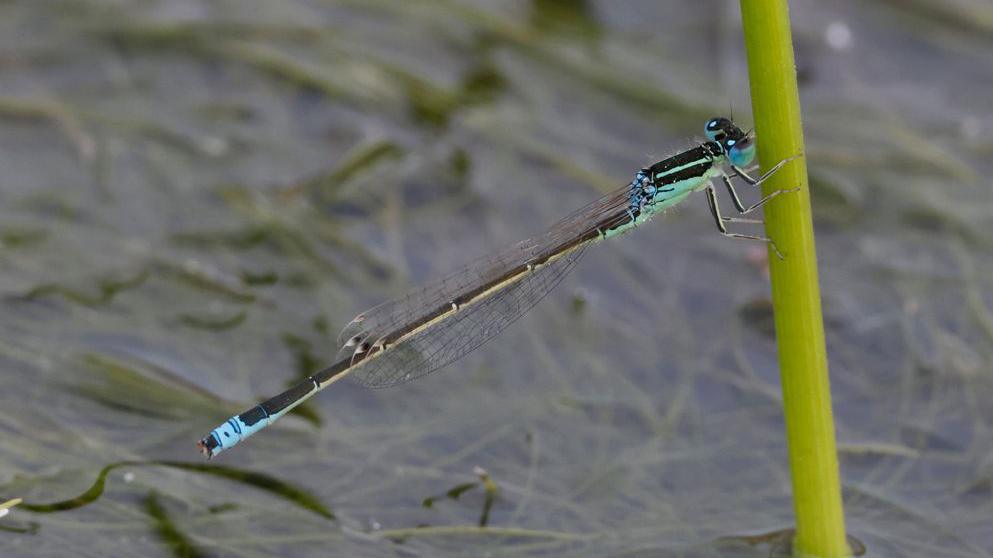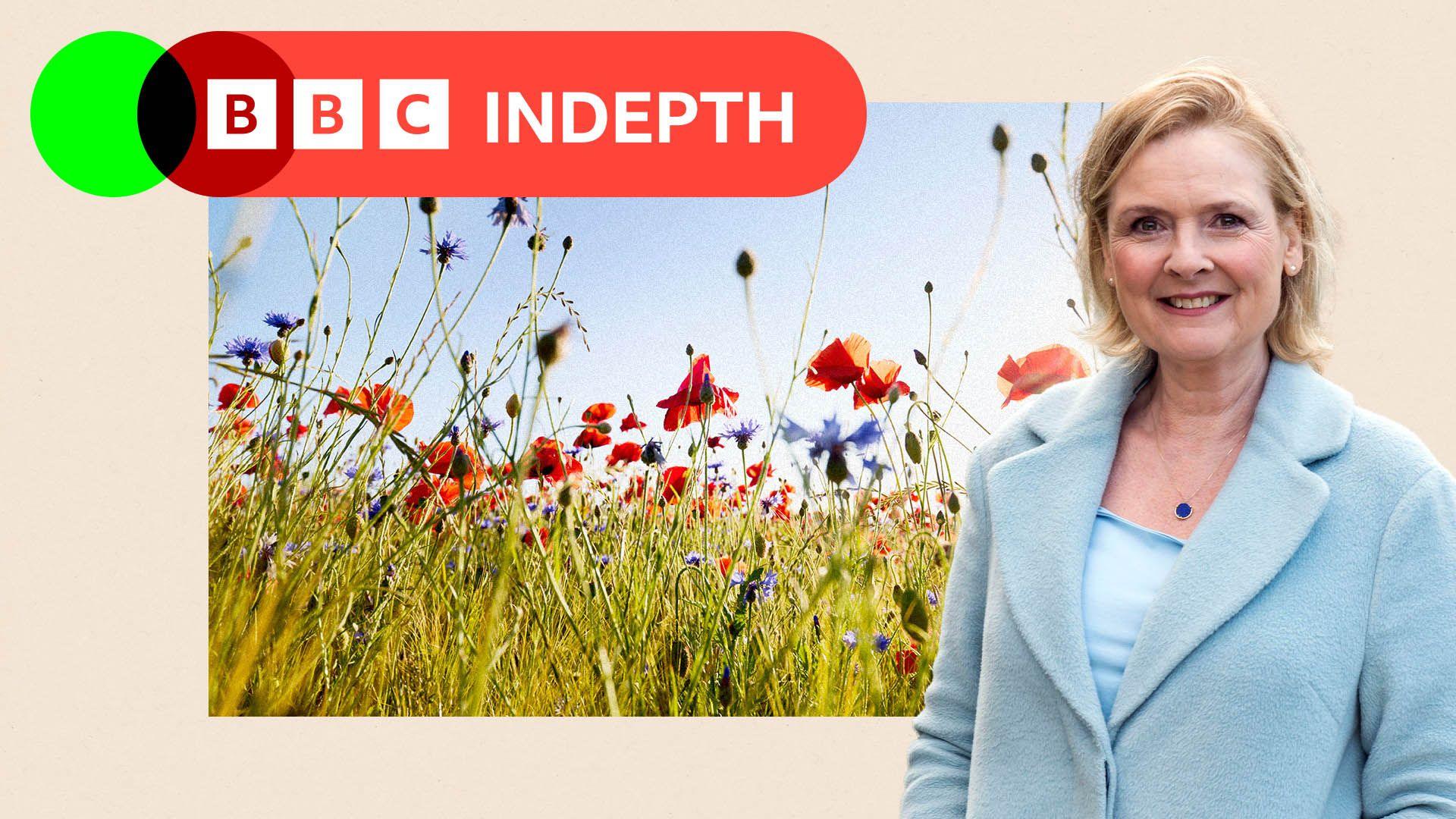Wildflower planting aims to restore rare habitats
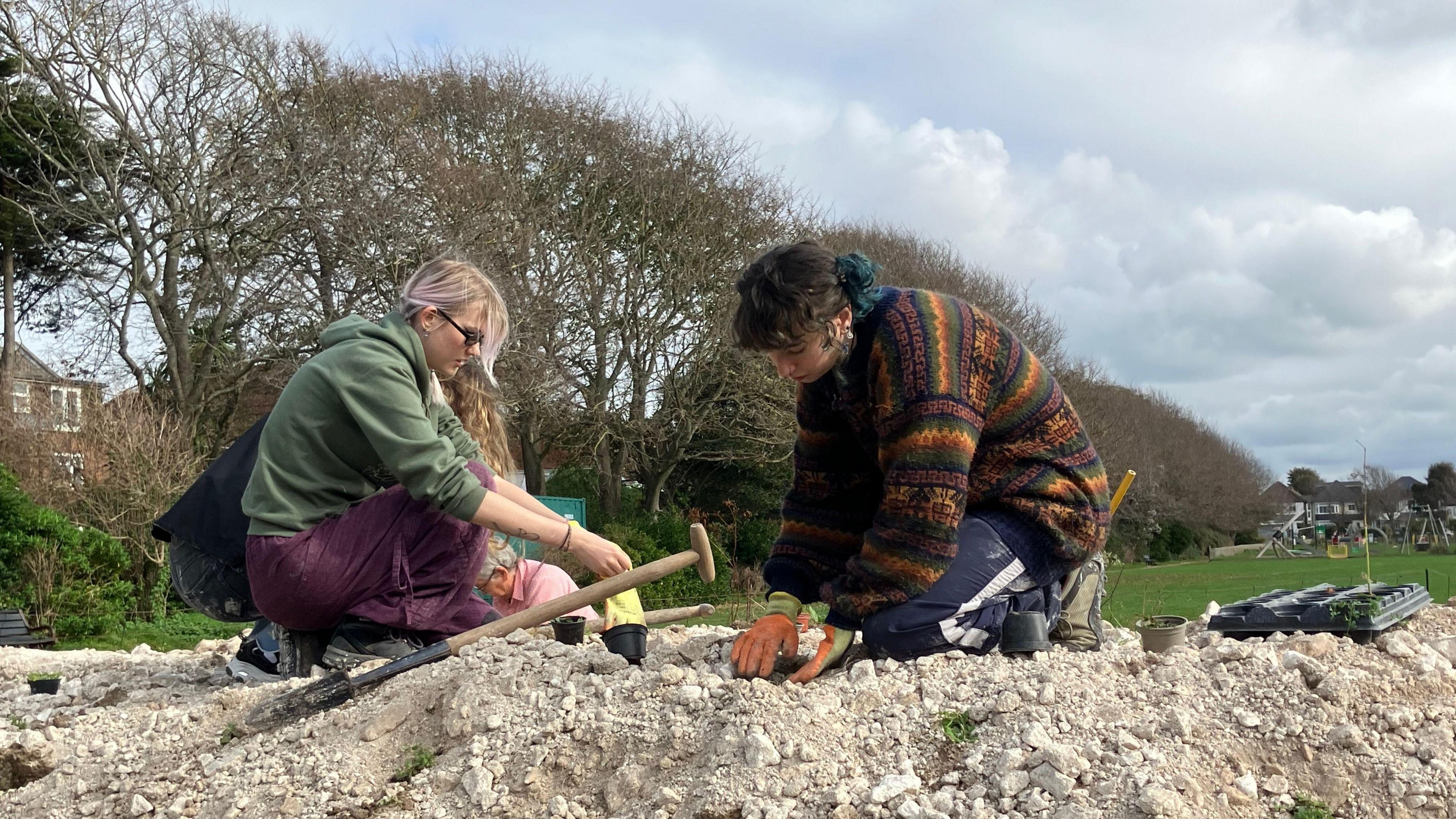
Rangers restoring a wildflower bank at Wish Park in Hove
- Published
A series of conservation efforts to restore rare chalk downland habitats is taking place across Brighton.
Brighton and Hove City Council said an old wildflower bank in Wish Park, Hove, is being replanted while a new chalk wildflower bank is being planted in Vale Park, Portslade.
The council said old chalk grassland is a "globally rare habitat" and home to many wildflowers and pollinating insects, but it has been in decline in the past 100 years.
Tim Rowkins, cabinet member for net zero and environment, said: "This project shows how beneficial creating wildflower-rich areas in an urban environment can be for our struggling pollinators."
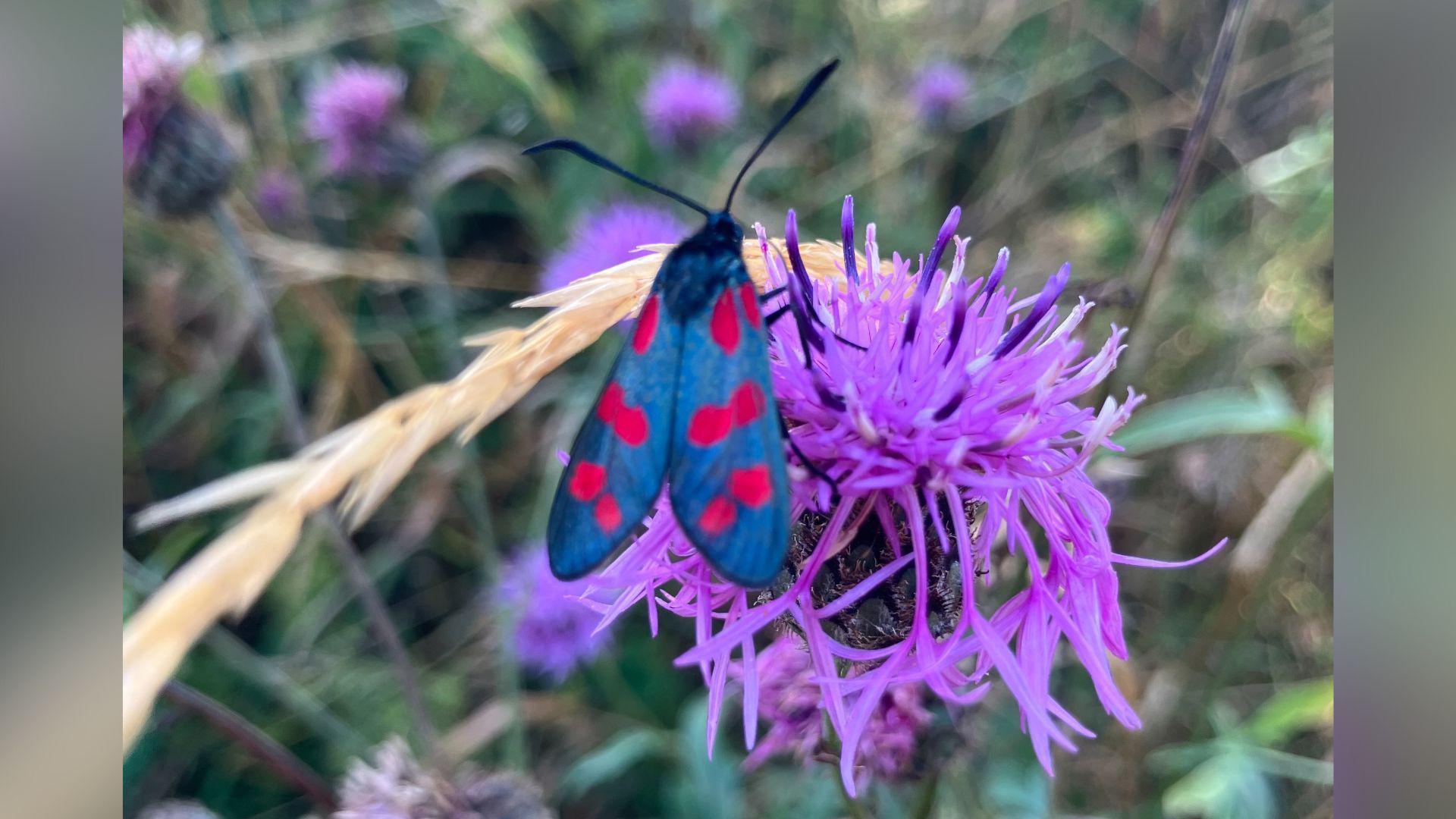
A six-spot Burnet Moth on Greater Knapweed at Hollingbury Park bee and butterfly bank
The council says volunteers from various conservation organisations have planted 800 wildflowers in Wish Park and more than 600 flowers have been planted in Vale Park.
They include wild thyme, kidney vetch, wild carrot, field scabious, ladies bedstraw, birds foot trefoil, wild marjoram, teasel and bladder campion to support a range of pollinators, birds and other wildlife.
According to the council's latest survey, there are 554 species of invertebrates, including more than 50 types of bee and 191 species of plants in the city's wildflower banks.
A spokesperson for the council said: "The banks may look a little bare after planting as it takes time for the plants to re-establish."
The council says this is part of the Changing Chalk project, which is a conservation scheme to reinstall the South Downs' fragmented chalk grassland.
Follow BBC Sussex on Facebook, external, on X, external, and on Instagram, external. Send your story ideas to southeasttoday@bbc.co.uk, external or WhatsApp us on 08081 002250.
Related topics
- Published16 August
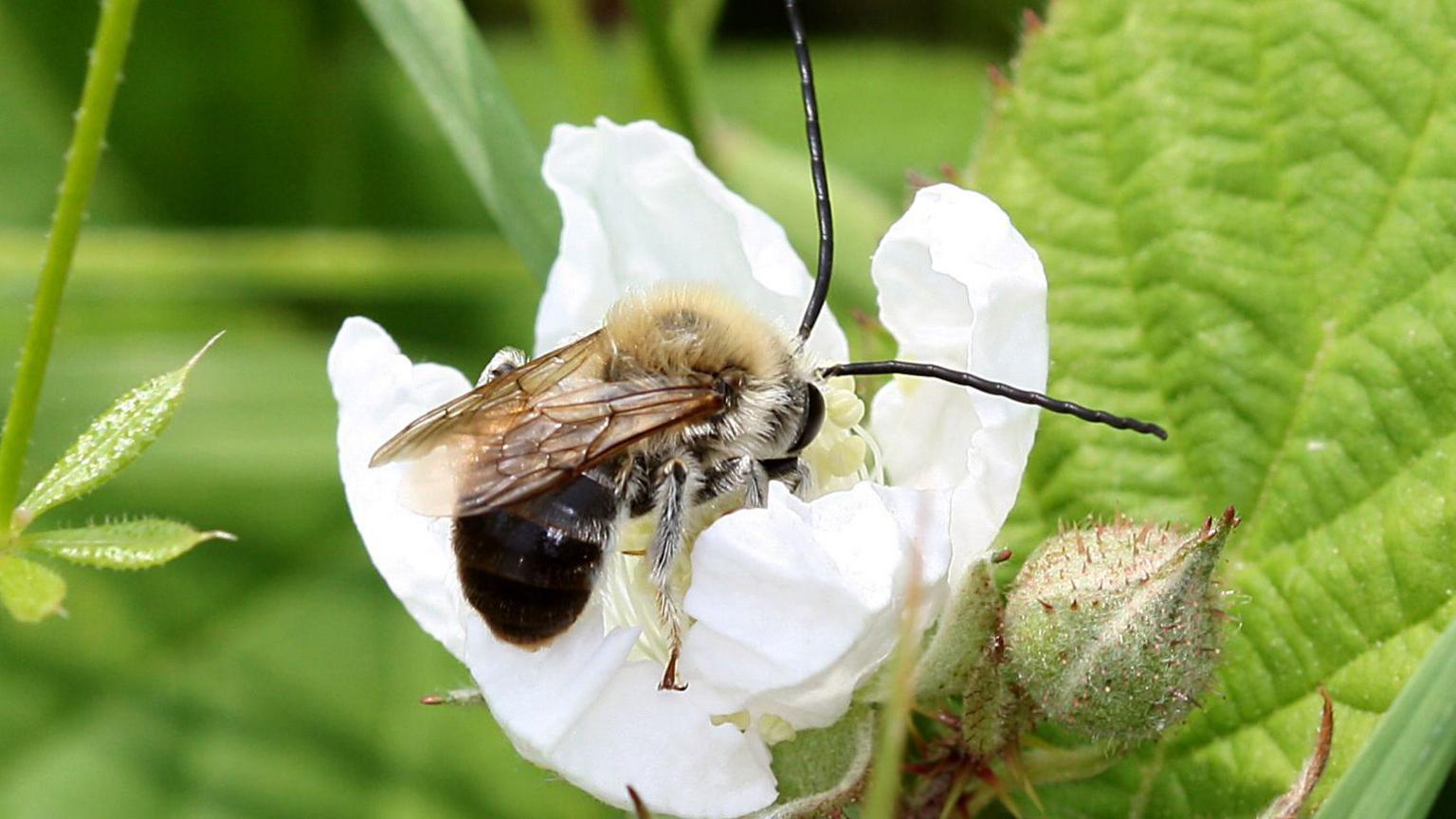
- Published15 October
